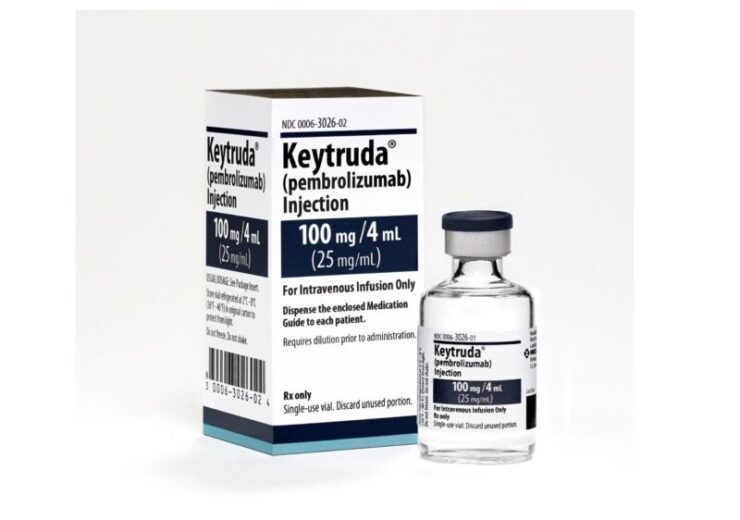Compared to chemotherapy, the combination met its dual primary endpoints of overall survival and progression-free survival showing a statistically significant and clinically meaningful improvement in participants

Keytruda’s product shot. (Credit: Merck & Co., Inc.)
Merck’s Keytruda (pembrolizumab), in combination with Seagen and Astellas’ Padcev (enfortumab vedotin-ejfv) has met dual primary endpoints in the Phase 3 KEYNOTE-A39 trial in certain patients with previously untreated locally advanced or metastatic urothelial cancer (la/mUC).
Keytruda is an anti-programmed death receptor-1 (PD-1) therapy whereas Padcev is a Nectin-4 protein-directed antibody-drug conjugate (ADC).
The trial assessed Keytruda in combination with Padcev against chemotherapy (gemcitabine plus cisplatin or carboplatin) in patients who were not eligible for cisplatin- or carboplatin-containing chemotherapy irrespective of PD-L1 status.
As per the results, the combination met the primary endpoints of overall survival (OS) and progression-free survival (PFS), showing a statistically significant and clinically meaningful improvement in participants, compared to chemotherapy.
Additionally, the combination outperformed chemotherapy in terms of overall response rate (ORR), a key secondary endpoint.
According to Astellas Pharma, the OS crossed the pre-specified efficacy boundary at interim analysis by an Independent Data Monitoring Committee.
Merck Research Laboratories chief medical officer and global clinical development head and senior vice president Eliav Barr said: “This is an important milestone, as many patients with advanced urothelial carcinoma still experience disease progression following chemotherapy. We look forward to sharing these data with the medical community and regulatory authorities.”
Also referred as EV-302, KEYNOTE-A39 is an open-label, randomised, controlled trial with a goal to evaluate the Keytruda, Padcev combination.
The findings from the late-stage trial are expected to serve as the confirmatory trial for the existing US accelerated approval of the drug combination.
Merck, known as MSD outside of the US and Canada, is testing this combination as part of a clinical development programme in collaboration with Seagen and Astellas across various stages of urothelial cancer.
Astellas oncology development head and senior vice president Ahsan Arozullah said: “We are thrilled that the topline results of the EV-302 study demonstrated that the combination of enfortumab vedotin and pembrolizumab improved the dual primary endpoints of OS and PFS.
“Patients living with metastatic urothelial cancer are in dire need of additional treatment options and this combination has the potential to advance the standard of care.”
